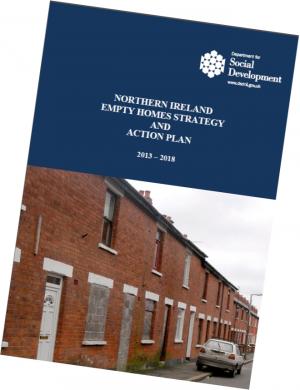



Northern Ireland's Department for Social Development, part of the Northern Ireland Executive, has launched a five-year empty homes strategy running through to 2018.
The main delivery vehicle will be the Northern Ireland Housing Executive which currently manages the majority of the social housing stock in the province whilst also undetaking more strategic housing functions.
The legislative landscape in Northern Ireland is very different from that in the rest of the United Kingdom. Many of the enforcement tools available in England are not available and one of the tasks identified in the strategy is to review the powers available. There are strong hints that EDMO-like legislation might be introduced.
This opens up an exciting possibility of Northern Ireland leap-frogging the rest of the UK by introducing legislation tailored to tackling empty homes rather than relying on more general purpose legislation as empty homes practitioners are often forced to do elsewhere, often with uncertain outcomes.
The council tax system was never introduced in Northern Ireland, which instead retains domestic rates, the long-time mechanism for local taxation until Margaret Thatcher's Conservative Administration decided it was better to tax people than to tax property. Not only does this mean a different financial landscape but it also implies a different information landscape, as practitioners in Ireland cannot rely on council tax data to locate empties.
One of hte key actions in the Action Plan is therefore to create a database of empty homes relying on information derived from a wide range of sources.
The Strategy identifies a priority for bringing ex-Housing Executive empties back into use (presumably these are Right-to-Buy homes now standing empty).
You can download the strategy via our Information Library from here.
